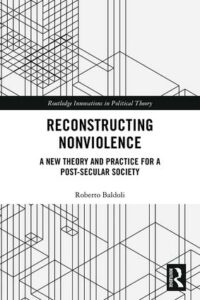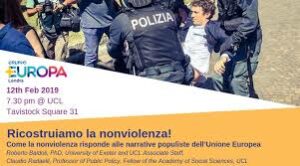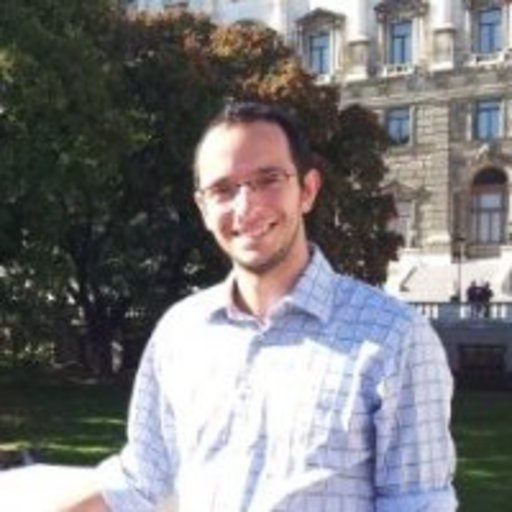Reconstructing Nonviolence: A New Theory and Action for a Post-Secular Society
NONVIOLENCE, ACTIVISM, REVIEWS, EDUCATION, LITERATURE, 2 Sep 2019
Posted by Antonio C. S. Rosa | Editor – TRANSCEND Media Service
Reconstructing Nonviolence: A New Theory and Action for a Post-Secular Society by Roberto Baldoli, Routledge: Sep 2018, 172 pp.
 Nonviolent methods of action have been a powerful tool since the early 20th century for social protest and revolutionary social and political change, and there is diffuse awareness that nonviolence is an efficient spontaneous choice of movements, individuals, and whole nations. Yet from a conceptual standpoint, nonviolence struggles to engage with key contemporary political issues: the role of religion in a post-secular world; the crisis of democracy; and the use of supposedly ‘nonviolent techniques’ for violent aims.
Nonviolent methods of action have been a powerful tool since the early 20th century for social protest and revolutionary social and political change, and there is diffuse awareness that nonviolence is an efficient spontaneous choice of movements, individuals, and whole nations. Yet from a conceptual standpoint, nonviolence struggles to engage with key contemporary political issues: the role of religion in a post-secular world; the crisis of democracy; and the use of supposedly ‘nonviolent techniques’ for violent aims.
Drawing on classic thinkers and contemporary authors, in particular the Italian philosopher Aldo Capitini, this book shows that nonviolence is inherently a non-systematic and flexible system with no pure, immaculate thought at its core. Instead, at the core of nonviolence there is praxis, which is impure because while it aims at freedom and plurality it is made of less than perfect actions performed in an imperfect environment by flawed individuals. Offering a more progressive, transformative and at the same time pluralistic concept of nonviolence, this book is an original conceptual analysis of political theory which will appeal to students of international relations, global politics, security studies, peace studies, and democratic theory.
Nonviolence has an established tradition in several disciplines, including political theory, international relations and political science. But its potential for the European Union (EU) has not been appraised yet. Thus, we set out to explore nonviolence as an analytical and normative framework for the study of the EU. At the outset, we introduce nonviolence and define our approach to this concept. We then apply our analytical and normative framework to three critical issues concerning the nature of EU power, the democratic deficit and the narrative of integration. We find that nonviolence re‐defines the core dimensions of power and democracy, and imagines the EU in non‐state‐morphic ways, situating praxis at the roots of the integration process and its narrative.
 Italian philosopher Aldo Capitini:
Italian philosopher Aldo Capitini:
Nonviolence for Capitini is praxis of liberation from the necessity and cruelty of nature, and also the openness to the existing one. Nonviolence adds actions of openness to all to reality, creating a different reality, which Capitini calls ‘reality of all’. Nonviolence enters religion and politics. As for religion, it develops the concept of copresence, which changes the idea of faith; it is the basis for the activities of the prophet and postulates a change in the structure of religions, proposing a different idea of commands and different models of actions. Nonviolence also changes politics. Capitini has proposed the theory of the two phases of power. The first phase is that of ‘power without government’, where the people learn to use and develop the power they have. This work leads to a second phase, called by Capitini omnicracy, the power of all, where institutions will not be necessary.
****
“This book is an important contribution to our knowledge of the Italian philosopher Aldo Capitini. At the beginning of the 1960s, Capitini was the precursor of concepts with great importance for our post-industrial societies, such as omnicracy, open religion, centre for social orientation, compresence between dead and new generations. Finally, this book is a very interesting work in the historiography of nonviolence and about the lesser known but profound intellectual Aldo Capitini.”
— Mario López-Martínez, Professor of Contemporary History, University of Granada
“In this ambitious and insightful book, Roberto Baldoli seeks to cross the divide between principled and pragmatic approaches to nonviolence. He does so by drawing generously from several familiar traditions while generating new insights. Nonviolence, for Baldoli and his fellow travellers in the universalist vein, is a way of life which manifests ethics while eschewing dogmatism. Baldoli’s book will be of enduring value for the praxis of nonviolence by the secular and faithful alike.”
— John Heathershaw, Associate Professor of International Relations, University of Exeter
______________________________________________
 Roberto Baldoli is Associate Lecturer at the University of Exeter and a member of the Centre for European Governance. He received his PhD in Politics from the University of Exeter in 2015. His main research interests revolve around nonviolence and European Politics. He published on the role of nonviolence to create a post-secular society as well as on different aspects of European politics, such as the European Citizens’ Initiative (ECI), the Spitzenkandidaten Procedure and the Precautionary Principle.
Roberto Baldoli is Associate Lecturer at the University of Exeter and a member of the Centre for European Governance. He received his PhD in Politics from the University of Exeter in 2015. His main research interests revolve around nonviolence and European Politics. He published on the role of nonviolence to create a post-secular society as well as on different aspects of European politics, such as the European Citizens’ Initiative (ECI), the Spitzenkandidaten Procedure and the Precautionary Principle.
Submitted by TRANSCEND member Antonino Drago
Tags: Activism, History, Literature, Nonviolence, Politics, Power, Reviews, Social justice, Solutions, West, World
This article originally appeared on Transcend Media Service (TMS) on 2 Sep 2019.
Anticopyright: Editorials and articles originated on TMS may be freely reprinted, disseminated, translated and used as background material, provided an acknowledgement and link to the source, TMS: Reconstructing Nonviolence: A New Theory and Action for a Post-Secular Society, is included. Thank you.
If you enjoyed this article, please donate to TMS to join the growing list of TMS Supporters.

This work is licensed under a CC BY-NC 4.0 License.
Read more
Click here to go to the current weekly digest or pick another article:
NONVIOLENCE:
- US Veterans Fast against Israel’s Starvation of Gaza
- Fasting for Gazans
- Statement for the International Day of Conscientious Objection to Military Service
ACTIVISM:
- Resistance Works
- Taking Female Genital Cutting Out of US Shadows Arshi Qureshi
- CODEPINK Responds to US Senate McCarthy-Style Attack
REVIEWS:
- MIT Science for Genocide
- We the People: Whistleblowers, Whistleblowing & Retaliation in the United Nations
- It’s Not You, It’s CAPITALISM
EDUCATION:
- Misconception and Right Concept of Peace Education: Theory and Praxis
- Financing Higher Education to Build Non-exploitative Society for Peace
- Relevance of Peace Education
LITERATURE: